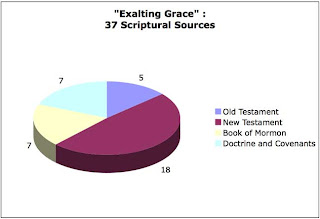| It's been decades since these vignettes last came to mind, and yesterday's sun was setting before it became obvious that I should insert them, now, into my personal history. They're a couple of indispensable sidebars on Bostonians whose memory I cherish: it would be a crime to leave them out. No photos, to my shame. Wish I’d thought. It was Blanche, wasn’t it, who taught us about the kindness of strangers… |
Maggie |
 | This is how the line outside the Durgin-Park Dining Rooms tended to look, back before they gentrified the Quincy Market area out of all recognition. |
| We East Composters, eight or ten strong, scruffy and hungry, would depart the dorm around 9:00 of a Saturday morning in 1958-61 and hike across the Longfellow (“Salt-and-Pepper-Shaker”) Bridge from MIT in Cambridge to the neighborhood of the Customs Tower at the Waterfront in Boston. Then we’d get near the front of the line, so as to be able to dash upstairs when the door opened at 10:30, and claim our spots at Maggie’s table. Maggie, you see, distinguished herself among Durgin’s notoriously sharp-tongued staff for her determination not to see undergraduates starve. Each of us would order a 95¢-special lunch, instituted in those days to get around Governor Foster Furcolo’s Old Age Tax of 5% on restaurant meals over a dollar. When we finished the glass of milk that came with the special, Maggie, ever tall, skinny, dark-blonde, and nearsighted, would absent-mindedly rest a broad tray of coffee-creams on our table and turn her back. By the time she looked at us again, all the cream-jiggers were empty, and our milk-glasses were pretty much full. Miraculous! Same sort of deal with trays of Durgin’s excellent corn-bread to which we weren’t, strictly speaking, entitled. For a sweet sequel from 1964, please check in over there. |
Brownie |
| December, 1958. With all the campus offered and demanded, this California-raised, sweetly sheltered, 17-year-old Tech tool had had very little commercial contact with Boston. But now the first snow was dusting the grime, and it was time to venture forth. Christmas was coming; I was flying home, and the folks back there would expect me to bear thither something more Bostonian than my greenhorn self. So, I trudged across the bridge and down to the Common. Windowshopped, bashfully, for a while. Saw something promising; entered the establishment; sought assistance and quickly formed a distressing generalization that Boston retail people think very highly of themselves and of the value of their time. Not sure anybody said, “And don’t steal anything, either!”, but they might as well have. Very different, culturally, from the almost-gushingly-friendly store clerks I’d grown up with on the edge of the Mojave Desert. Pretty soon, I was in tears. Or maybe it was just sticky snow crystals. Felt the same, either way. Wandered, disconsolate, up West Street from Tremont and the Common toward Washington, and stopped at the bright front window of Bailey’s of Boston. Through which I could see a display of classy hand-dipped chocolates. Thought I, I can at least take Pappy some of those. Entered. Stood by the chocolates. Very quietly. Then a voice: “Wassamadda, kid?” Looked up. Didn’t see anybody. The voice repeated the question. This time I discerned, so help me, standing beside the display (I couldn’t have seen her over it), Flora! See the gray hair, tied up? the round face and twinkly eyes? Fauna and Meriwether didn’t show themselves. |
| Once Brownie figured out what was eating me, she took charge. Named four or five nice retail places. For each, said something like, “At Brooks Bruthahs, tell ’em ya wanna talk ta Henry; then tell Henry, Brownie sentcha. He’ll find ya a very Baast’n tie fa y’dad.” At each establishment, people just like the ones I’d met earlier now treated me with respect, consideration, and all the friendliness one could have desired. Blessings upon Brownie, in whose name and for whose sake I was, however callow, Californian, and doubtless visibly impecunious, suddenly somebody of worth. I won’t bother to get explicit about the theological parallel I’ve come to cherish here. Too obvious. |





